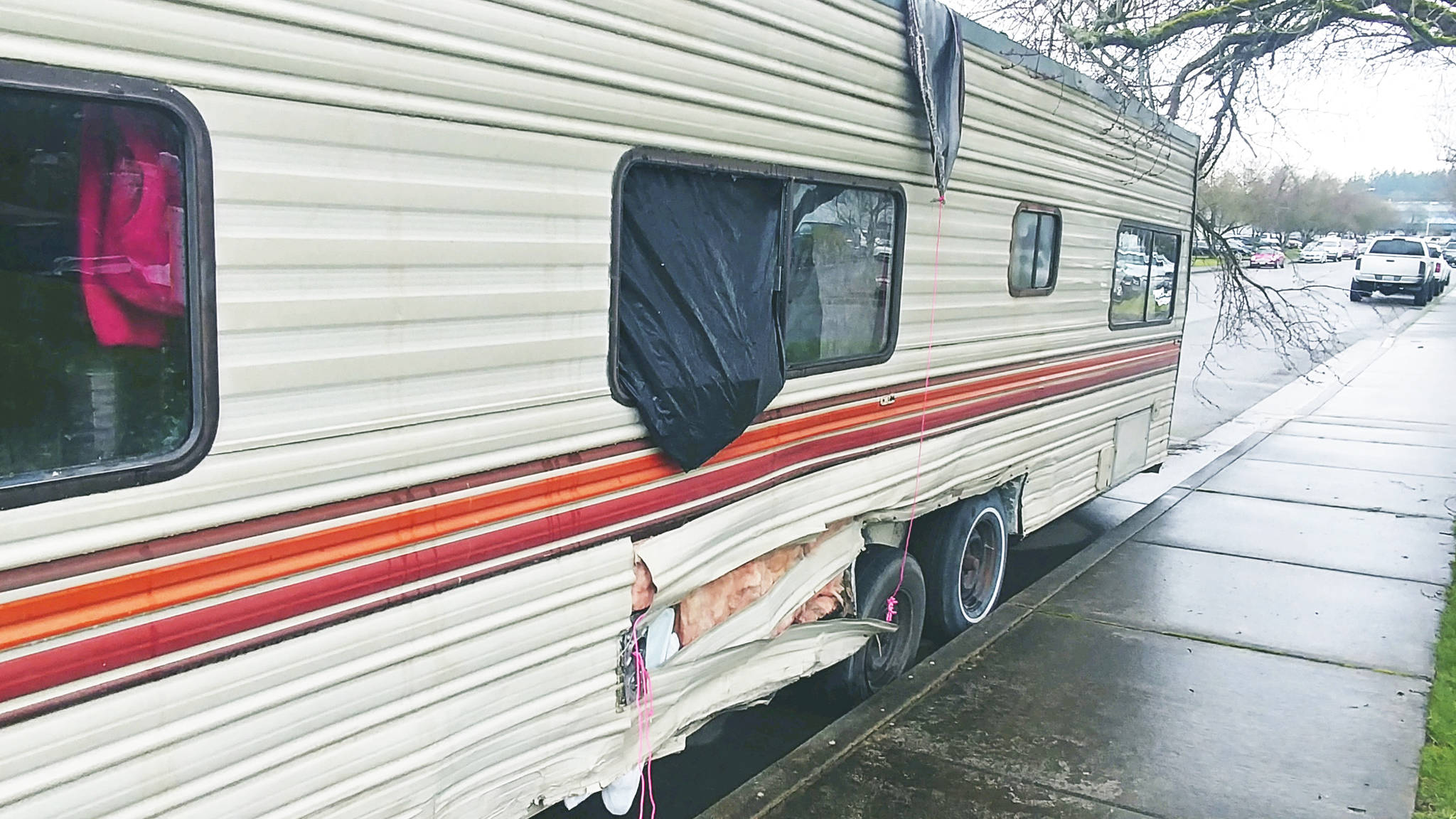Update: The City Council Feb. 18 amended sections of the city code related to illegal parking, vehicles and traffic and other language that brings city laws consistent with state criminal laws, as Arlington transitions to using Snohomish County’s Cascade District Court to preside over court proceedings.
ARLINGTON – Parking scofflaws have been outfoxing Arlington police for years, avoiding a citation within 72 hours by wheeling their junk vehicles ahead a foot or two to hide the “chalk” warning on tires or spray paint line on the street.
Whether the vehicle is operable or not, Police Chief Jonathan Ventura said, owners and others “basically just come out and push the car forward a little, and say, ‘See, we’re moved.’”
When it comes to parking, Ventura said, “We were very limited on what enforcement actions we can do.”
There ought to be a law.
Actually, there is, but if the City Council Monday adopts an amended illegal parking section to the city code, scofflaws are going to find that police have plenty of new enforcement tools and easier impound powers, aside from fines already permitted.
The changes are part of a series of updates to the criminal justice-related sections of the code primarily covering peace, morals and safety; vehicles and traffic; and animals. It also brings city laws consistent with state criminal laws.
The problem is a quality of life issue, and it’s getting worse with more abandoned vehicles and trailers turning up around town.
Illegally parked vehicles – whether abandoned, inoperable or just plain neighborhood eyesores – are the bane of frustrated law-abiding residents, police with more pressing caseloads, and elected officials who field the calls from constituents asking for something to be done.
In the case of chalked cars, Ventura said, “We just have to mark it again. And you can imagine, looking at our call load, it’s hard for us to stay on top of it.”
Police, the city attorney and others have been working on updates for months. “We’re trying to be responsive and navigate the issue sensibly,” Ventura said.
The new laws address illegal parking by stating that if a vehicle is moved within the same neighborhood block, it still constitutes a violation if it is parked more than 24 hours after being marked in that area. The officer can then issue a citation.
The definition of “vehicle” was broadened to refer to motorhomes, trailers, boats, trucks, vans, tractors, buses and recreational vehicles, whether unlicensed or licensed, motorized or non-motorized.
The law also clarifies which vehicles can be impounded with notice, such as marking the vehicle for a parking violation, and without notice in situations where a vehicle is clearly abandoned, blocking traffic or parked in a handicapped spot.
A vehicle not subject to impoundment may still be impounded after notice of the proposed impoundment has been displayed for 24 hours prior to being hauled away.
Impoundment can be done either by an officer or towing company under contract with the city.
The new codes also spell out how to provide notice to owners, gives them the ability to request a hearing to contest the impound, how they can get their vehicle back, and how the city can reclaim the expense.
Within 24 hours after a vehicle is impounded, the towing company or police will mail a first-class notice to the last known legal owner.
Ventura said the owner can contest the validity of the impoundment or the towing and storage charges, and request a hearing in writing within 10 days to Snohomish County’s Cascade District Court in Arlington. The city is transitioning to partner with the county and the district court for court and jail services.
Most illegal parking constitutes a non-criminal infraction, and the department’s police services officer can issue a $50 citation, or a $124 tickets consistent with state law. Combined with towing and storage fees, it can become costly and time-consuming for violators.
In most instances, police and code enforcement staff are looking for compliance. Police hope the new laws will reduce the abundance of illegally parked and abandoned vehicles.
“It has been a long time coming,” Ventura said.



